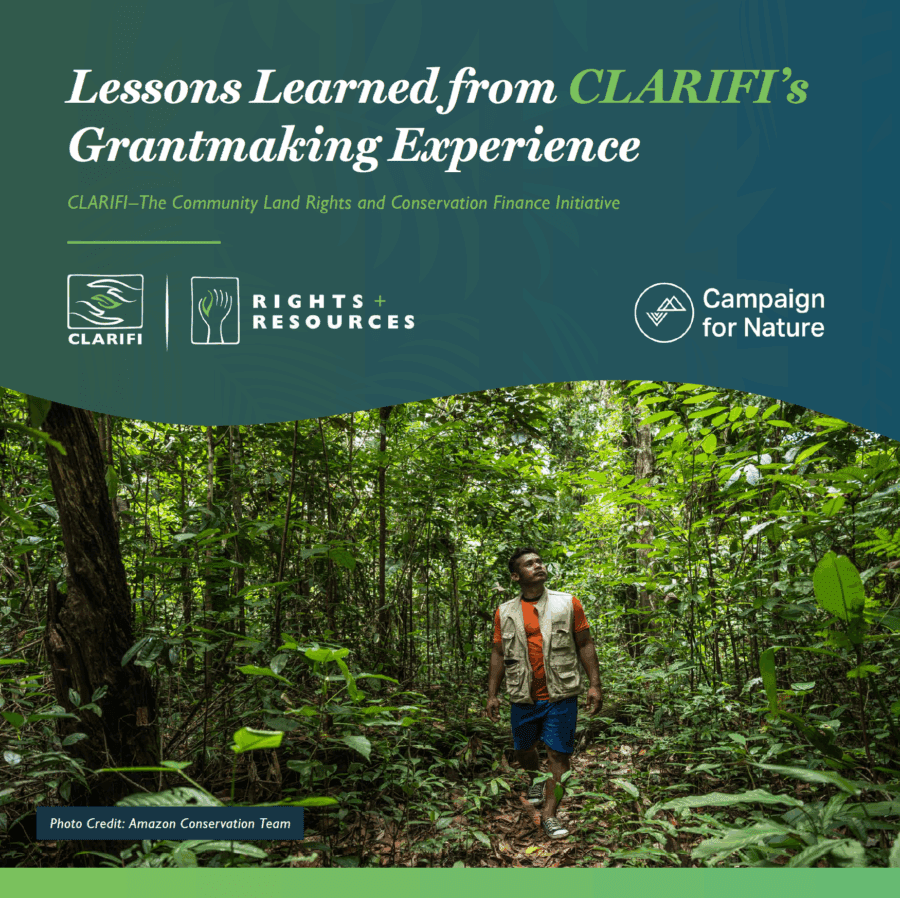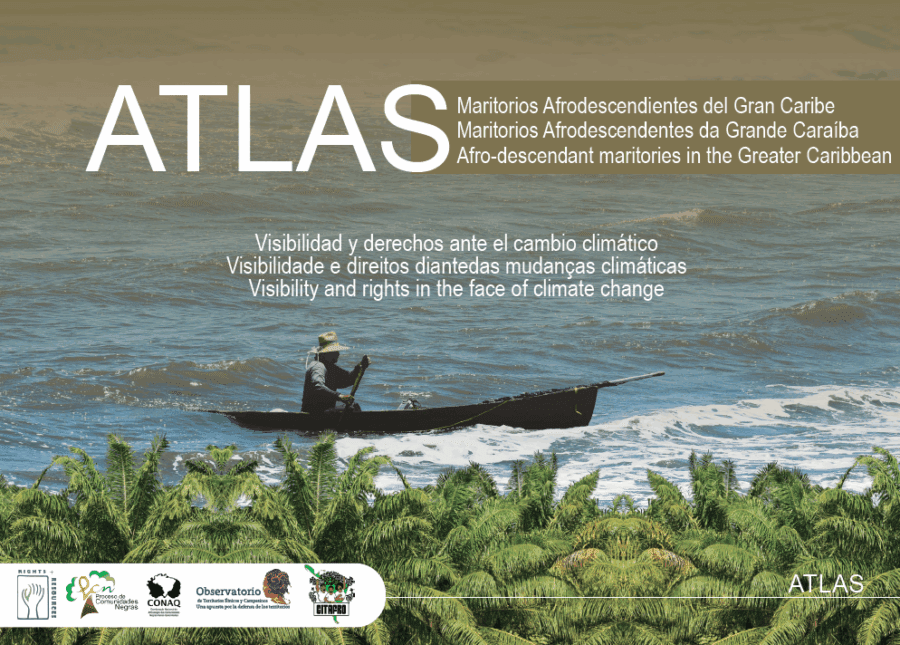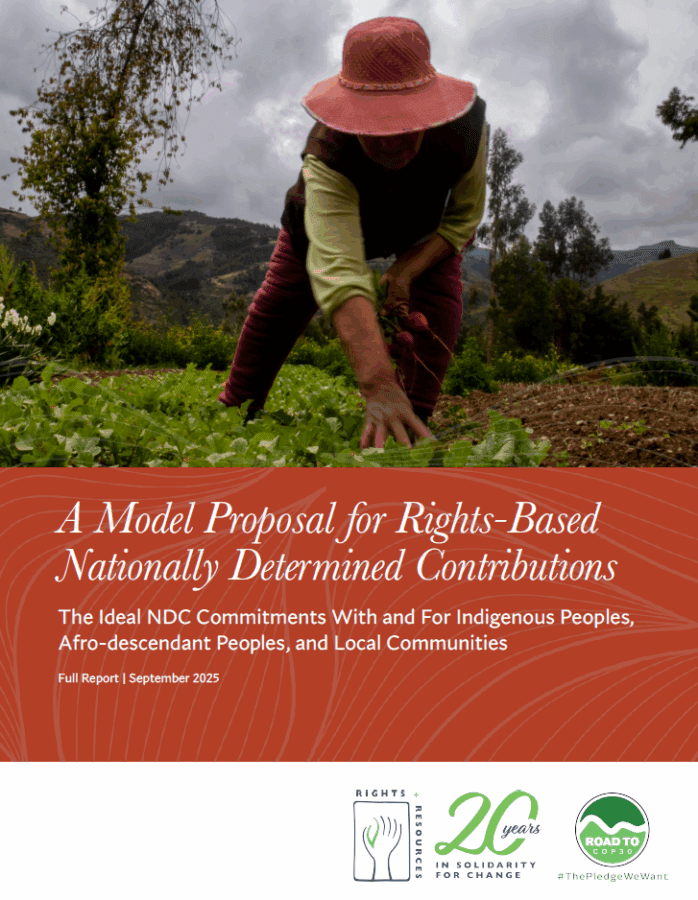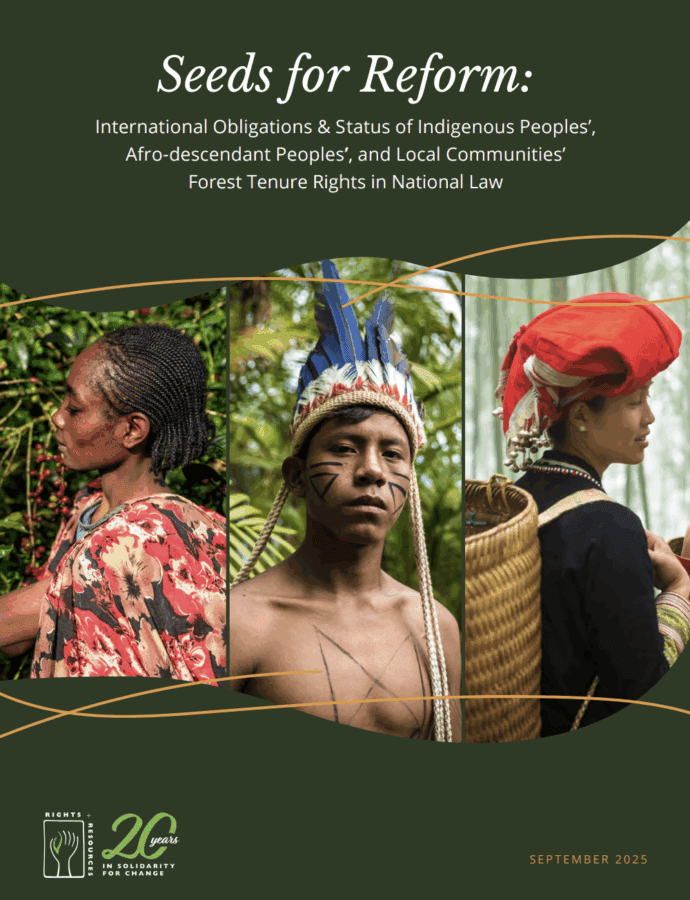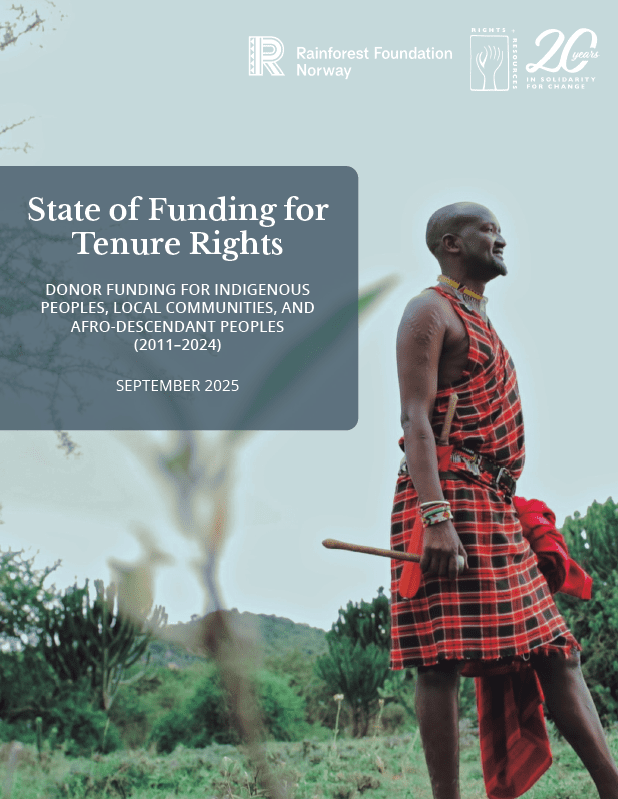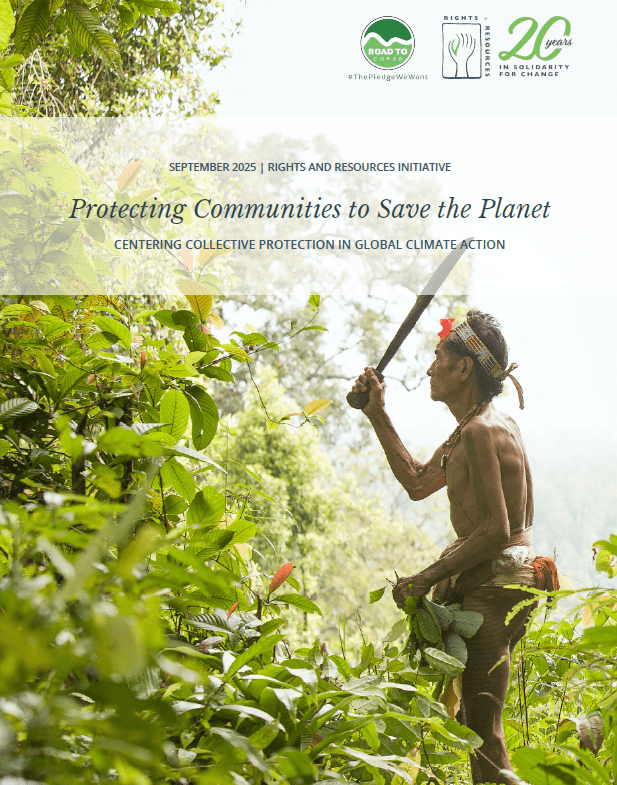This document captures emerging lessons from CLARIFI’s three-year learning journey. CLARIFI is RRI’s Indigenous and local community-led funding mechanism, and these lessons draw on collaboration with hundreds of partners worldwide to examine how resources can move directly to Indigenous, Afro-descendant, and local community organizations. Beyond documenting programmatic learning, it underscores a clear message that effective and equitable climate action depends on financing that is long-term, flexible, directly accessible to communities, and firmly anchored in secure land and territorial rights.
Continuing the mapping of lands and spaces used by people of African descent carried out in 2024, this edition incorporates a maritime and coastal dimension that allows for a more complete understanding of the complex network of relationships between Afro-descendant Peoples and the marine environment.
This document presents the Rights-Based NDC Model, a framework designed to integrate the rights and contributions of Indigenous Peoples, Afro-descendant Peoples, and local communities into the design and implementation of Nationally Determined Contributions (NDCs) under the Paris Agreement. NDCs are the central policy instruments through which countries communicate their climate commitments—defining national goals, mitigation and adaptation strategies, and financial needs.
This report offers RRI's updated assessment of the status and strength of Indigenous Peoples’, Afro-descendant Peoples’, and local communities’ statutory forest tenure rights across 35 countries in Africa, Asia, and Latin America.
This second edition of the State of Funding for Tenure Rights provides an updated analysis of international donor funding for Indigenous Peoples, local communities, and Afro-descendant Peoples in tropical countries from 2011 to 2024. This edition includes an expanded scope to all terrestrial ecosystems, recognizing the importance of tracking funding beyond forests.
Through examples of Indigenous Peoples’, Afro-descendant Peoples’, and local communities’ movements from the Maya Biosphere Reserve in Guatemala, the Enggano island in Indonesia, India's Bastar region, the Sinangoe in the Ecuadorian Amazon, and Colombia, the report presents best practices from communities defending their territories and cultures.

